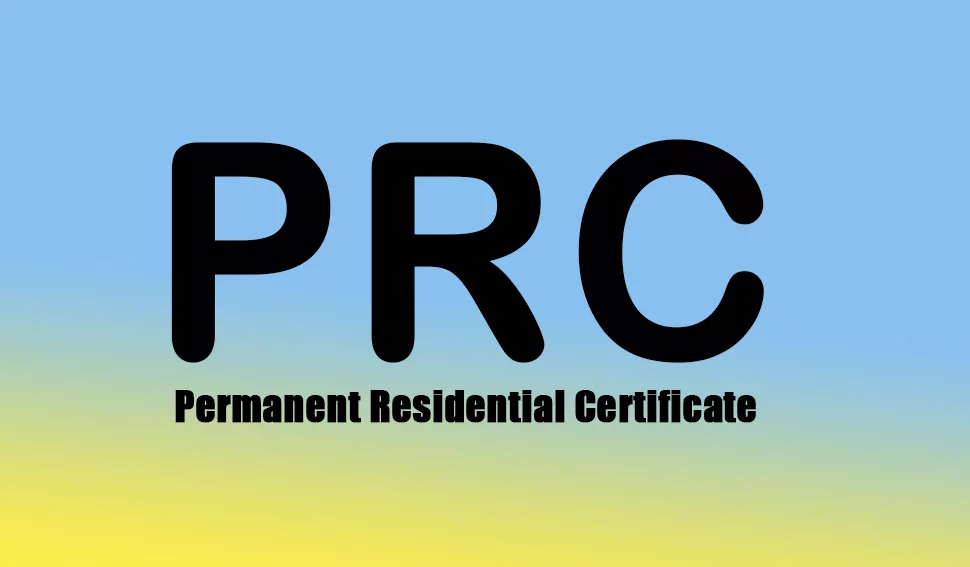In the world of documentation, “What is PRC Certificate?” is a question many people ask, especially when dealing with legal identity, residency status, or educational admissions. The PRC certificate, short for Permanent Residence Certificate, plays a vital role in establishing an individual’s long-term residency in a specific state or region in countries like India.
Whether you’re applying for a government job, university seat, or state scholarship, having a PRC can make all the difference.
What is a PRC Certificate?
A PRC Certificate (Permanent Residence Certificate) is an official government-issued document that verifies a person’s permanent residence in a specific area, district, or state. It acts as proof that the person has been living in a region for a prescribed period and is entitled to claim local benefits, such as reservations, educational quotas, or government schemes.
This certificate is particularly important in states with domicile-based reservations in India like Assam, Arunachal Pradesh, Nagaland, and Manipur. It proves the applicant’s eligibility for state-level benefits.
Why is the PRC Certificate Important?
If you’re wondering why this document matters, here are a few key reasons:
- Domicile Proof: It acts as legal proof of your residence in a particular state.
- Government Jobs: Many state-level jobs require applicants to submit their PRC Certificate.
- Educational Benefits: Colleges and universities often reserve seats for permanent residents.
- Scholarships and Financial Aid: States offer educational assistance and other schemes to their residents.
- Land Ownership or Property Rights: Some states require PRC for land transactions or property rights.
Who Can Apply for a PRC Certificate?
Eligibility may vary by state, but generally, the following conditions are applicable:
- The applicant should have resided in the region for a continuous period (usually 10–15 years).
- Parents or ancestors should be permanent residents of the region.
- The applicant must not hold a PRC from another state.
Some states also require the applicant to belong to specific communities or tribes to qualify.
Documents Required for PRC Certificate
While document requirements vary slightly depending on the issuing authority, the commonly required documents include:
- Application form (duly signed)
- Proof of residence (ration card, utility bill, etc.)
- School leaving certificate or education proof
- Voter ID/Aadhaar card
- Land documents or tax receipts
- Affidavit declaring permanent residency
- Passport-sized photographs
In some cases, police verification may also be required to confirm your place of residence.
How to Apply for a PRC Certificate?
Thanks to digitization, applying for a PRC Certificate has become much easier. You can now apply online through state government portals or offline through your local tehsil or revenue office. Here is a general process:
- Visit the official website of your state’s e-district portal or local revenue department.
- Register or log in with your credentials.
- Fill in the application form and upload the required documents.
- Submit the form and note the application number.
- Track the status online or visit the office to collect the certificate after verification.
Most states issue the PRC certificate within 7–30 working days depending on verification time and workload.
Read More: Social Media Poses Global Mental Health Threat to Children
Common States That Require PRC Certificates
The importance of PRC is prominent in northeastern and union territories of India. States such as:
- Assam
- Arunachal Pradesh
- Nagaland
- Mizoram
- Tripura
- Manipur
These states often have specific legal frameworks that restrict benefits and rights to local residents only.
Final Thoughts
So, what is PRC Certificate all about? In simple terms, it’s your gateway to accessing state-specific benefits. Whether you’re a student, job seeker, or property buyer, having this certificate can streamline your path. Make sure you understand the local eligibility criteria and apply through the official process to avoid delays or rejection.
Read More: Freelancers Tax in Pakistan: What You Need to Know in 2025









